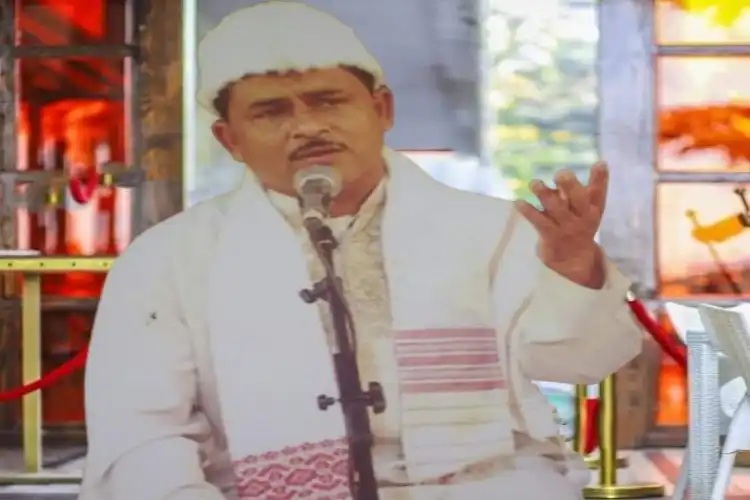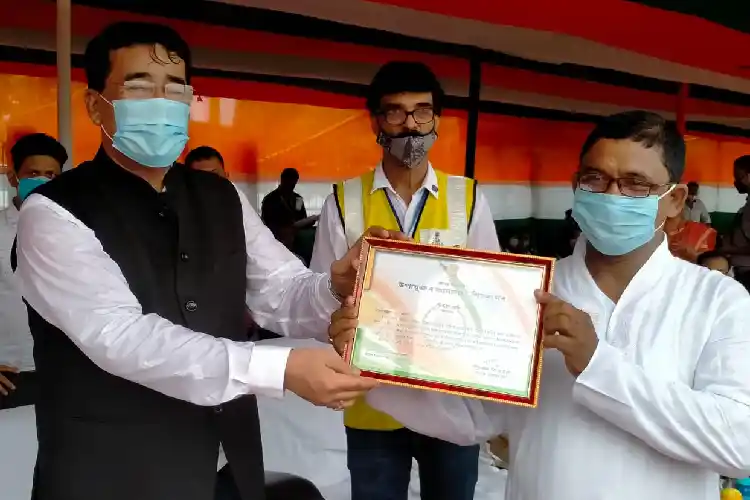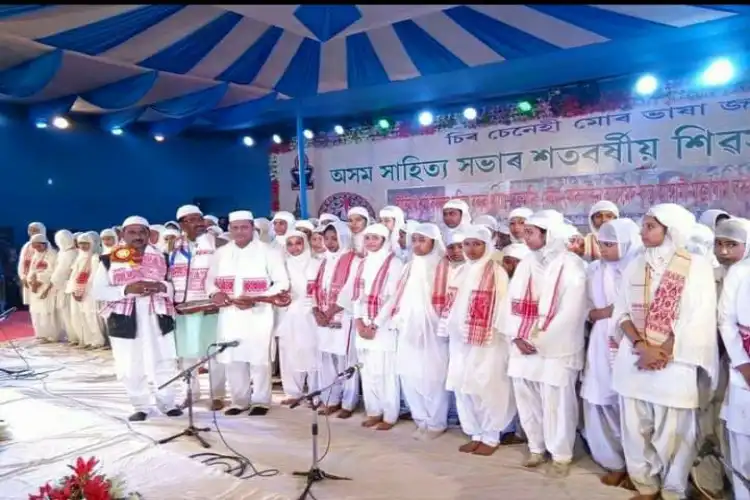
Ariful Islam/Guwahati
Sufi saint Azan Pir came to Assam in 1634 to preach. He gifted the people of the State one of its prized cultural entities called the zikir (Islamic devotional songs celebrating peace and brotherhood among Muslims and Hindus). Before preaching, the saint, whose original name was Syed Moinuddin Baghdadi and who is known by his popular names as Shah Milan, Shah Miran, and Azan Deo Saheb, learned about the neo-Vaishnavite culture founded by the saint-reformer Srimanta Sankaradeva. He assimilated it in his message and what came out was zikir.
With time, zikir and jari (another creation of the saint) seemed to be losing interest among the youth despite some initiatives to revive it in the past. Babul Ali of Sivasagar, a zikir exponent and joint secretary, Azan Pir Dargah management committee, is not only making initiatives to retrieve and preserve the prized works of the Sufi saint, but also promoting them across India and abroad.
He has been performing zikir in different parts of the country and organizing workshops to familiarise the younger generations with the cult.
Ali has taken the help of Wajidur Rahman of Dergaon in eastern Assam to get the lyrics of ‘Mur Manat Bhed Bhaab Nai O Allah ...’ to Hindi and is working on Hindi version of four more zikirs to reach out to the wider audience.

Babul Ali receiving an award for his work
Ali has also held workshops in various parts of India to introduce zikir to young singers. Five years ago he held a workshop on Indian folk songs in Bangalore under the aegis of Spicmacay. A total of 55 trainees participated in it. Although there was only one Muslim among them, all the participants could pick up the genre.
“The instruments, music, and tune of zikir attracted the participants. Since there was no Assamese-speaking participant, I wrote the syllables in English text on the board and translated the ‘Mur Manat Bhed Bhaab Nai O Allah …’ into Hindi. The participants could pick up the zikirs in this form quite quickly,” Ali told Awaz-the Voice in an exclusive interview.
Babul Ali has been interested in zikir since his childhood. He was much inspired by the zikir renditions by one of its greatest exponents the late Rekibuddin Ahmed. Ali said, "When zikir was broadcast on the radio during my childhood,I would go to my neighbours house to listen to zikir. Back then my family didn’t own a radio. I am a fan of Rekibuddin Ahmed’s zikir. My father bought me a radio so that I could listen to zikir at home. When I was in Class IV, I participated in a zikir competition in our village and received much appreciation. I came in contact with Rekibuddin Ahmed in 1986 and later on I got recognition as a broadcast artiste in 1990."
“Rekibuddin Ahmed was the first to promote zikir. Before him, the zikirs were perhaps misconstrued to be spiritual songs and were kept hidden by some people. Since people of those ages were mostly illiterate, the zikirs probably remained unwritten leading to the loss of many of them in due course of time. There were no equipment to record the songs. Zikirs thus was an oral tradition till Rekibuddin Ahmed started singing them on radio and performing on stages,” Ali elaborated.

An all girls group performing Zikri
About preservation of zikir, he said: “Out of the 165 zikirs Azan Pir had penned, only 80 are in the written form now. The rest are in oral form and are prevalent only in Lakhimpur and Nagaon districts. The Azan Pir Dargah Committee has taken the initiative to get the lyrics written down but is stalled midway due to some constraints. It will be resumed soon.”
Also Read: Ghose looks after Guwahati shrine, upholds unity of faiths
“Another aspect that has been lately talked about is that some singers, nowadays, perform zikir in their tune and music at different stages. But, no one is authorized to change the tune, lyrics, or instruments of zikir. Unfortunately, this is happening and pushing the original zikir to the brink of extinction,” Ali further said.
Lamenting that there are still many places in Assam where people are not aware of zikir and that only women seem to be interested in zikir, Ali feels there should be workshops across the state to keep zikir alive.
